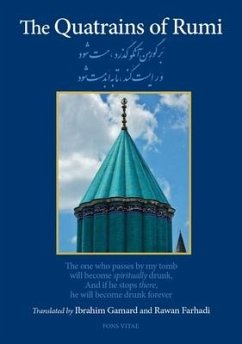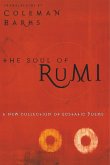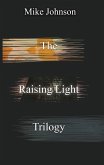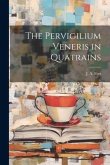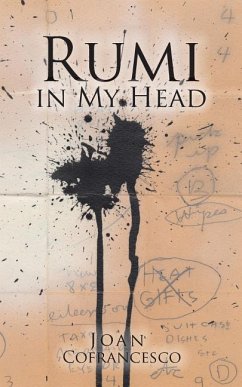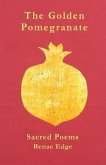This is the first complete translation into English of the nearly two thousand quatrains attributed to Jalaluddin Rumi, the famous thirteenth century Persian mystical poet. Less attention has been given by scholars to his quatrains than to the rhymed couplets in his Masnavi) and the odes in his Divan). Instead, what has been available are mostly distorted and popularized versions of the quatrains that are often made by authors who do not read Persian. The present book addresses this deficit by providing accurate translations and plentiful explanations made through the collaboration of two Rumi scholars: Rawan Farhadi (an Afghan) and Ibrahim Gamard (an American). The quatrains are ordered into numerous stages and themes of the mystical path of the " lover" and the " beloved" (the spiritual disciple and Sufi master). A. J. Arberry, the renowned British Rumi scholar (and author of Mystical Poems of Rumi), wrote about Rumi's quatrains: " ... after taking into account all the requisites of literary appreciation and criticism, we may reckon in the neighborhood of 500 of these ruba' iyat as among the finest masterpieces of Persian literature." William C. Chittick, the American Rumi scholar (and author of The Sufi Path of Love: The Spiritual Teaching of Rumi), wrote about the present book: " This most welcome addition to the literature on Rumi is the fruit of many years of collaborative effort by two dedicated scholars, both of whom are thoroughly familiar with Rumi's historical, cultural, and religious context. Until now, Rumi's quatrains have received little attention from scholars, yet they sum up his teachings in pithy and moving form." Coleman Barks, the American poet and well-known Rumi popularizer (and author of The Essential Rumi), wrote: " Ibrahim and Rawan, are scholars of the purest ray, thorough and impeccable, precise, and generous. This book that they have put together, The Quatrains of Rumi, should be on the shelves of anyone who loves Rumi and what Rumi loves. Their scholarly apparatus is masterful and complete. Their Notes are layered and Mystical. They understand from the inside out Rumi's central ecstatic insight: that just to be in a body and conscious is cause for rapture. Their understanding of Rumi's poetry is experiential. The authority they bring to this text is whole and gorgeous. They feel the music of the language and they communicate that subtlety with consummate skill."
Hinweis: Dieser Artikel kann nur an eine deutsche Lieferadresse ausgeliefert werden.
Hinweis: Dieser Artikel kann nur an eine deutsche Lieferadresse ausgeliefert werden.

